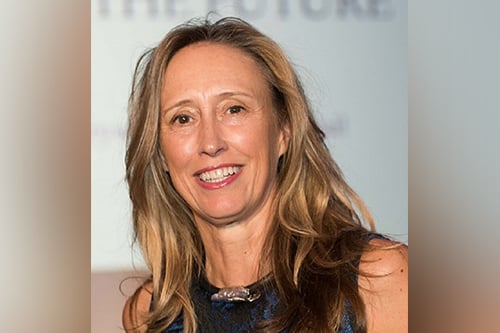

For Maxine Benson (pictured), co-founder of everywoman Ltd, being busy is something to be embraced as a sign of the changing times of diversity in financial services. everywoman has been in operation for about 20 years, Benson said and, in the beginning, it was hard to even open the door to conversations about the importance of gender diversity in business.
“You’re not going to hear me complaining about how busy we are,” she said, “we’ve waited many years for this moment.”
When she looks back at how the call for gender diversity has developed, she can clearly see how it was a series of both small and larger events which have started to change a mindset, to change conversations and, in many cases, to change actions.
Benson considers the 2008 economic crash to be one of the largest contributing factors to this change. Prior to 2008, she said, women were often dependent on finding somebody who felt that the issues of diversity and inclusion were important and who was willing to act as a champion for these issues within a business.
“And then the 2008 crash came along,” she said, “and the conversation was suddenly changed to ask, ‘how did our decisions get made?’ and ‘why were there no checks and balances?’.”
When it was asked ‘who were the challenging voices?’, she said, there was a sudden realisation that almost everybody involved looked the same and went to the same schools and said the same things. When you have ‘groupthink’ like that, Benson stated, you don’t get much diversity of thought, and she believes that was the start of a lot of the major conversations about gender diversity.
This realisation, Benson said, coincided with research being done at the time which was able to prove the business case for increased diversity and its positive impact on return on profitability and performance.
Research on the business case for positive action such as the McKinsey report on ‘Delivering through Diversity’ was essential, Benson outlined, and helped to start movements like the 30% Club as well as encouraging a focus on setting targets for getting more women in senior positions.
Beyond this, however, she said, there also developed at this time a greater understanding of gender behavioural differences and of how different people respond in different ways to pressure. This, in turn, Benson believes, created a deeper comprehension of the need for diversity of thought within a business.
“When there’s a lot of pressure,” she said, “people will resort to type, it’s a defence mechanism. So, if you have the same characteristics in everybody around the table they will revert to type with an even stronger voice.”
Also coming into play in recent years is the voice of the younger generation becoming louder and stronger. There is now a greater understanding, she said, of what the priorities of this generation are and of how they make their career decisions. For this generation, Benson said, who they want to work with and finding people with shared values is really important.
This has been largely enabled by social media, she outlined, which is allowing everybody to have a voice and also allows movement to get underway very quickly.
The increased level of conversation regarding diversity in insurance does not mean that the battle is won, however, and Benson highlighted a number of sobering statistics gathered from the 2019 everywoman in Insurance Forum. Seventy three per cent (73%) of those surveyed at this forum, she revealed, felt there was a mismatch between what is said and what is done around diversity within the industry.
Insurance has arguably been slower to come to this conversation than other financial services sectors, Benson said, and 65% of those who attended everywoman’s forum stated that they felt that encouraging women to speak up within a business context was still treated as a ‘women’s issue’.
There is enormous value in these anonymous polls, Benson said, with their ability to give real insight from those who are currently working within the insurance industry. Across the industry, she said, great conversations are being had about diversity and some organisations are doing great work in this area.
As long as 80% of those surveyed at an insurance forum believe that senior leaders are unaware of their own conscious bias there is, of course, “still so much to do,” Benson said, but, for now, she is just happy to be busy.
